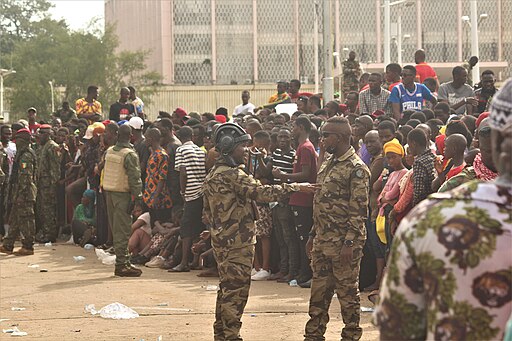How Power Politics Have Reset the Timetable for Democracy in Africa
Cameron Bird
Staff Writer
July 2023 marked the end of democratic rule in Niger, located in the Sahel region of Western Africa. A month later, Gabon joined the multitude of African states to experience a coup this decade. Elements of neo-colonialism and failed multilateralism are given the initial blame, however, influential power politics present a distinct reasoning for this pattern. Since the end of the colonial period in Africa, efforts for democratic governance and economic development have been marred by the repetition of a pattern that has unfortunately become all too synonymous with the continent.
African states that are ruptured by ethnic conflict and ideological differences, among many other factors, have continuously proven incapable of developing strengthened and fortified democratic institutions. The New York Times describes how “military takeover in the West African nation of Niger toppled the final domino in a band across the girth of Africa, from Guinea in the west to Sudan in the east, now controlled by juntas that came to power in a coup- all but one in the past two years.” These events are often perceived as unique to the region; however, it is becoming more apparent that the issues facing these African states are not as unique as has often been perceived and are rather a result of continuous cycles of manipulative and impatient power politics, under the façade of protecting state security.
As a result, the deferral of power has fallen on military institutions and structures, placing the primary roles of power politics in the region in the hands of potentially manipulative generals and military officials. Burkina Faso’s latest coup resulted in the installment of Captain Ibrahim Traore as head of state, replacing the previous junta leader, Lieutenant Colonel Paul-Henri Sandaogo Damiba, just nine months after Damiba had launched a coup due to worries over state security, reports the Africa Center for Strategic Studies. The report additionally outlined that “Traoré justified his coup by claiming he would restore security and turn the tide of conflict. Yet, the effects of the coup have reportedly diverted precious resources, attention and personnel from the frontlines of the security and humanitarian crises confronting the country.”
According to Al Jazeera, nearly 44 percent of all successful global coups have occurred in Africa.” Africa’s ‘coup belt’ in the Sahel region in West Africa, has become a hotspot for junta takeover, militant insurgency, and Islamist extremism, only adding to the long persisting problems facing the region, such as high birth rates and slow economic development.
The historically defining impact upon the communities, governments, and institutions of Africa continues to be colonialism. However, colonialism is often used to denote several general patterns, which are linked to it both directly and indirectly. While BBC News assesses the sources of these coups to be “poor economic development, and continuous poverty,” two symptoms inextricably linked to colonial rule, it is simple to assign these superficial indicators as the product of colonial structure. However, like other factors, they are rooted in sources of conflict not singular to Africa. As Reuters notes, “persistent insecurity and corruption have opened the doors to military leaders.” Not only does this identify the security dilemma as an inherent issue, but it focuses attention on a problem not that is indirectly influenced by, not unique to, colonialism.
Subsequently, when deducing the future of democracy in the region, fixating the blame on echoes of colonialism would not acknowledge the normalcy of Africa’s persistent problem. Africa’s pattern of coups are a manifestation of grappling with the complications of power politics. With the only strong institution in a state such as Gabon being the military, there is no source of strength with which the democratic ideals of a government can lean upon. Just as in Europe where power imbalance and lack of secure structures are currently leading to conflict between Russia and Ukraine, African states are struggling with rising Juntas. This proves that while Africa faces a problem in terms of maintaining democratic structures, its problems are similarly rooted in concepts of security and legitimacy not unique to the African continent.
In determining the future of democracy in Africa, traditional influences of power, internally and externally, are unlikely to alter the trajectory of events that have become all too common in the region. The Associated Press acknowledges that there is “potential for influence by a regional bloc such as ECOWAS [the Economic Community of West African States], but there is additional potential for conflict and war between the two power players.” Yet, inherent realism theory would suggest that external influence will prove to be so minimal that at most it will be a mere distraction to new junta leaders.
Image Courtesy of Wikimedia Commons


